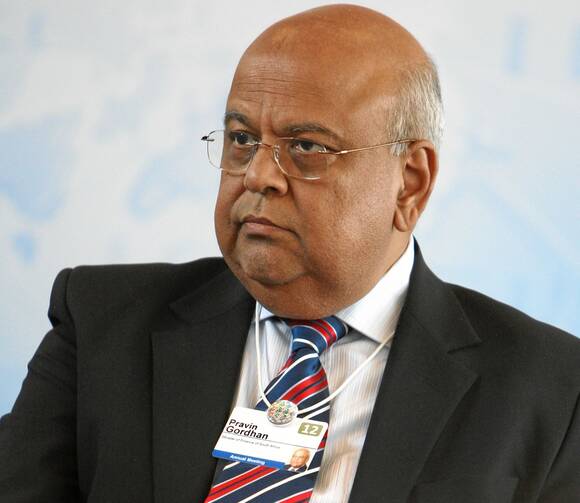Just when we thought it was safe to say that the Hawks (the Directorate for Priority Crime Investigation, sort of the F.B.I.’s poor cousin here in South Africa) had finally got their claws out of Finance Minister Pravin Gordhan, they’re back! Conveniently waiting until after the local elections, they have once again subpoenaed Gordhan regarding alleged irregularities while he was head of the South African Revenue Service (S.A.R.S.).
Their first attempt at “having a go” at Gordhan ended with egg on the Hawks’ faces. The allegations of running a secret financial intelligence unit without official permission was revealed to have been nonsense—misinformation leaked to a gullible press (some of it owned or partly-owned by President Jacob Zuma’s cronies). Together with this old chestnut, the Hawks are investigating whether he approved the early retirement and subsequent rehiring on a fixed-term contract of Ivan Pillay, a S.A.R.S. deputy director.
The latter, in effect meaning that Pillay would receive his pension but still work for S.A.R.S., is odd but it is hardly a crime. It is often done in South Africa, particularly in the past as part of affirmative action retirements. A government employee (usually white) would retire early—“take the package” as it was called—but would frequently work on a part-time contract, often mentoring his or her successor. There’s nothing illegal in that.
The intelligence unit issue is a little more complex. Gordhan has admitted that he set up an intelligence network within S.A.R.S. to investigate tax evasion and other crimes against the fiscus. South African law here is oddly phrased, but legal experts assume that it can be read as follows. A government department can investigate covertly matters pertaining to its work—i.e., S.A.R.S. can investigate tax evasion—but not if the matter is the subject the country’s national security.
In short it seems that the anti-Gordhan witch hunt is on again.
President Jacob Zuma has insisted that he fully supports his minister of finance and believes him innocent but claims he can do nothing to stop the investigation. Legal expert Pierre de Vos believes otherwise: under the law Zuma can have the head of the Hawks removed or suspended for a variety of reasons, including misuse of his office.
But he hasn’t. Or more likely, he won’t.
Why?
Fundamentally, Gordhan and his director general in finance are in a battle with Zuma and his political and economic allies over bailing out South African Airways, which is basically bankrupt. This is widely believed to be the result of mismanagement and corruption from on high by its directors, who are Zuma appointees. It is also widely believed that some of these appointees have been unduly influenced in their duties by the Guptas, the Indian billionaire family who have in the past gained profit through what is seen as a corrupt relationship with Zuma and company.
This state capture, as it’s called here, is fiercely opposed by Gordhan. Gordhan is being supported in this struggle by opposition parties, sections of the A.N.C. (often in secret), by civil society groups like the Helen Suzman Foundation and by veteran human rights lawyers like George Bizos.
For them it is a battle for the soul of South Africa, for good governance and economic stability in the face of a slide into populism and state collapse.
Anthony Egan, S.J., is one of America's Johannesburg correspondents.








